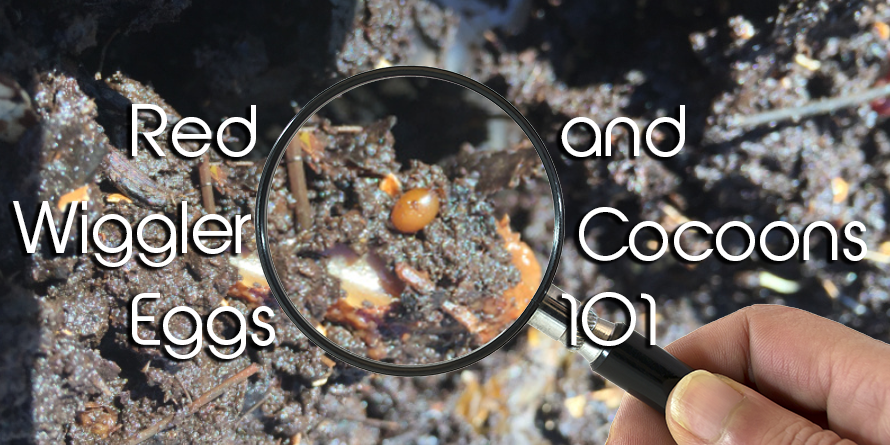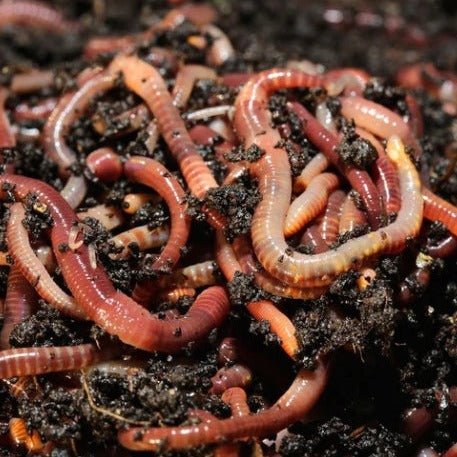Lake Hickory Bait: Your Ally for Enjoyable Fishing on the Lake
Lake Hickory Bait: Your Ally for Enjoyable Fishing on the Lake
Blog Article
The Unbelievable Globe of Red Wigglers: Increase Your Dirt Fertility Today
These small yet reliable organisms transform natural waste right into important worm spreadings, considerably boosting soil wellness and promoting sustainable methods. As we explore the benefits of vermicomposting and the sensible steps to develop an effective worm bin, the potential effect of these worms on your horticulture success ends up being increasingly apparent.
Comprehending Red Wigglers
Red wigglers, scientifically recognized as Eisenia fetida, are a types of earthworm that play a critical function in improving dirt fertility. These worms flourish in organic-rich settings, such as compost heap and decaying plant material, where they take in organic waste and secrete nutrient-dense spreadings. Their special makeup, including a segmented body and a clitellum, allows them to replicate swiftly and efficiently process big amounts of organic matter.

The eco-friendly relevance of red wigglers extends past plain waste handling; they add to the soil food internet, promoting a diverse area of microbes that better boost soil wellness. Comprehending the biology and behavior of red wigglers is crucial for using their full possibility in sustainable farming and gardening techniques.
Benefits of Vermicomposting
(Lake Hickory Bait)Harnessing the power of red wigglers with vermicomposting offers countless benefits that significantly improve dirt health and fertility. Among the key advantages is the production of nutrient-rich worm spreadings, which are an outstanding all-natural plant food. Red Wiggler Express. These castings consist of important nutrients like nitrogen, phosphorus, and potassium, advertising durable plant growth and enhancing plant yields
The existence of worm spreadings boosts dirt texture, allowing for better water retention and drainage. Red wigglers aid break down natural matter, increasing decomposition and reusing nutrients back into the dirt.
Vermicomposting also promotes microbial task, which is vital for a healthy dirt community. Beneficial bacteria flourish in the presence of worm castings, assisting in the breakdown of organic materials and boosting vitamins and mineral schedule to plants.
Finally, vermicomposting offers as an effective waste management solution, reducing land fill waste by reusing kitchen area scraps and various other natural materials. This not only adds to ecological sustainability however also promotes a round economy within horticulture and farming.
How to Set Up a Worm Container
Establishing a worm container is a simple procedure that can dramatically boost your composting efforts. Begin by selecting a proper container, which can vary from a readily readily available worm container to a basic plastic or wooden box (Red Wiggler Express). Make certain the container has appropriate ventilation; small openings in the lid and sides will certainly help with air blood circulation
Following, produce a bedding layer to give a comfortable setting for the red wigglers. This can be made from shredded newspaper, cardboard, or coconut coir, dampened to a moist, sponge-like consistency. Fill the container to about one-third full with this bed linen material.
Once the bedding is prepared, it's time to introduce the worms. Red wigglers thrive in organic waste, so area them carefully onto the bedding. Cover the worms with a light layer of extra bed linen to help them acclimate.
Feeding Your Red Wigglers
Giving the appropriate food for your red wigglers is important for their health and the performance of your composting system. Red wigglers flourish on a diverse diet, mainly containing natural products such as fruit and veggie scraps, coffee grounds, and shredded paper. These materials not only give vital nutrients yet likewise contribute to the microbial task in the worm container, which is essential for the worms' food digestion.
It is essential to stay clear of certain foods, such as milk products, oils, and more information meats, as these can attract bugs and develop unpleasant odors. Furthermore, citrus peels and overly spicy foods need to be restricted as a result of their possible to hurt the worms. A well balanced method to feeding involves checking the amount of food introduced to the bin, ensuring that it is taken in within an affordable amount of time to stop excess waste buildup.
To promote optimal food digestion, it is beneficial to chop or shred larger food items before adding them to the bin. This practice boosts the surface for microbial activity, assisting in quicker disintegration and boosting the total performance of your composting system. Consistently observing the worms' feeding behaviors will certainly aid you readjust their diet plan as needed.
Utilizing Worm Spreadings in Your Yard

(Red Wiggler Express)Incorporating worm castings right into your garden can be achieved by mixing them into the dirt or utilizing them as a top clothing. The slow-release nature of these spreadings guarantees that nutrients are available to plants over an extended duration, minimizing the requirement for synthetic plant foods. Additionally, worm spreadings have beneficial microbes that promote healthy dirt environments, improving the total resilience of your yard.
To make best use of the advantages, objective to use around one part worm spreadings to 3 parts dirt in your growing beds. Routine applications can lead to boosted crop yields and much healthier plants, making worm castings an important source for both beginner and experienced gardeners alike. By using this all-natural amendment, you can cultivate a growing garden while adding to sustainable gardening techniques.
Conclusion
Finally, red wigglers exemplify the crucial duty of vermicomposting in improving dirt fertility. Their ability to transform organic waste right into nutrient-rich castings substantially enriches soil framework and sustains microbial diversity. Developing a vermicomposting system not just advertises sustainable horticulture techniques but likewise adds to eco-friendly health. By leveraging the benefits of these impressive organisms, gardeners can cultivate extra effective and durable communities, eventually promoting an extra lasting strategy to agriculture and horticulture.
Report this page